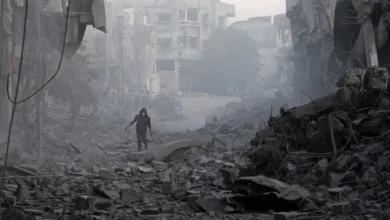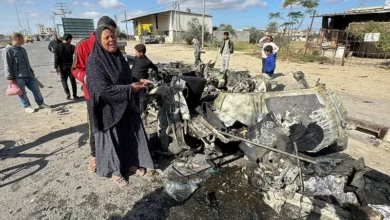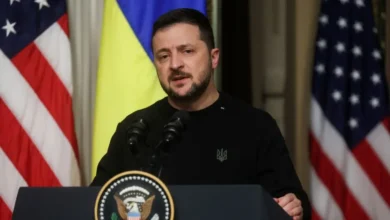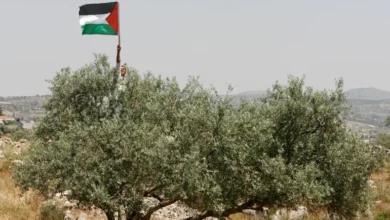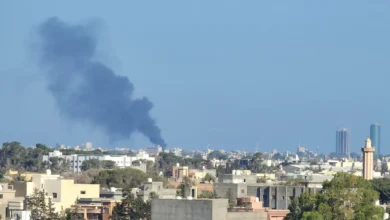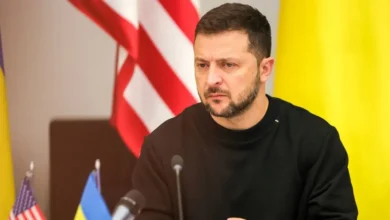‘Chilling effect’: Israel’s ongoing surveillance of Palestinians
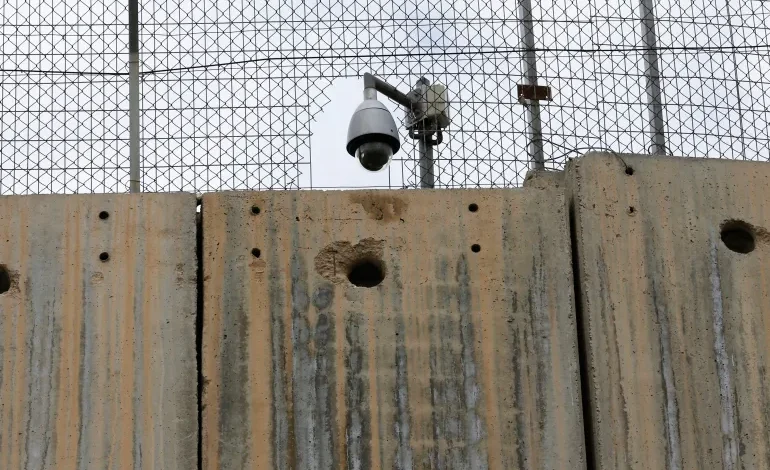
For activist Issa Amro, the latest revelations from human rights group Amnesty International about Israel’s ever-growing use of facial recognition technology against Palestinians come as no surprise.
“I’m living it. I feel it. I’m suffering from it. My people are suffering from it,” he told Al Jazeera from Hebron.On May 2, Amnesty published a report titled Automated Apartheid, detailing the workings of Israel’s Red Wolf programme – a facial recognition technology used to track Palestinians since last year that is believed to be linked to similar, earlier programmes known as Blue Wolf and Wolf Pack.
The technology has been deployed at checkpoints in the city of Hebron and other parts of the occupied West Bank – scanning the faces of Palestinians and comparing them against existing databases.
If the individual’s information is not found on existing databases, the person is automatically enrolled in Red Wolf without their consent, and could even be denied passage through the checkpoint, Amnesty revealed.
In a statement to The New York Times, the Israeli army said it carries out “necessary security and intelligence operations, while making significant efforts to minimize harm to the Palestinian population’s routine activity”.Palestinian writer Jalal Abukhater said the surveillance systems are used to make Palestinians feel they have no rights.
“People feel this chilling effect, where they do not socialise or move as freely as they would – they do not live normally as they would,” Abukhater, speaking from occupied East Jerusalem, told Al Jazeera.
“This form of surveillance system is used specifically to entrench the occupation … they want to maintain apartheid.”
According to Amnesty, facial-recognition surveillance networks have also increased in East Jerusalem, including around places of cultural significance like the Damascus Gate – the Old City’s largest entrance and a site of frequent protests against the occupying forces.
In February last year, Amnesty said Israel is imposing apartheid on Palestinians – treating them as “an inferior racial group”. Other organisations, including US-based Human Rights Watch and Israeli rights group B’Tselem, have made similar conclusions.Hebron, which was occupied by Israel in 1967, is divided into two parts: H1, administered by the Palestinian Authority, and H2, administered by Israel, according to the 1997 Hebron Agreement.
There are some 200,000 Palestinians living on both sides as well as several hundred Israeli settlers who are heavily protected by Israeli forces.
Palestinians are regularly subjected to checkpoints and banned from using several main roads and highways.
‘A laboratory’
Activist Amro says Palestinians living in Hebron have become mere “objects” in what he calls Israeli “experiments”.
“Hebron has become a laboratory for their security solution companies to do simulation on us, to troubleshoot on us and market their technologies,” he said. “We have no say in it.”
Israeli cybersecurity company NSO Group has come under widespread criticism over its flagship software Pegasus, a spying tool used by dozens of countries to hack into smartphones.
Hundreds of journalists, activists and even heads of state have reportedly been targeted.
Moreover, writer Abukhater says, for Israel to maintain its burgeoning illegal settlement projects in the occupied territory, cybersecurity programmes like Red Wolf are necessary.
“Surveillance technologies such as this [facial recognition] are important, especially in cities where Israel is introducing settlers into the heart of Palestinian cities. The fact that they [settlements] are deep within Palestinian neighbourhoods in places like East Jerusalem and Hebron, creates a lot of problems and a lot of issues,” he said.
“It’s [surveillance technology] a way to control Palestinians, and make sure the settlement expansion goes on unobstructed by Palestinian resistance.”
According to the United Nations, Israeli settlements in the West Bank are illegal, and a “flagrant violation” of international law.


